- Home
- Franklin Horton
The Mad Mick: Book One of The Mad Mick Series Page 2
The Mad Mick: Book One of The Mad Mick Series Read online
Page 2
Bryan also understood there was a possibility the country might reemerge from this disaster as a nation that held little resemblance to the earlier United States. He wanted to be ready for any contingency. His understanding of history told him men who controlled trade and commerce prospered, while those who isolated themselves and hid out in bunkers would remain isolated and poor. He wanted to establish himself, to put himself in a position where he might be one of the financial powerhouses of the re-emerging world. Padowicz might one day be mentioned with the same reverence as Carnegie, Vanderbilt, DuPont, Westinghouse, and a long line of others.
He’d lived in the same college neighborhood for years, a place where he could walk to class and to the local bars. It was also close enough to the core of the college community that young women could come by and visit him. Though information was sparse in the early days of the collapse, there was no panic and unrest in Bryan’s community. He sat around each evening with his friends, smoking weed and discussing the state of things. It was during one of those bull sessions that Bryan hatched the plan that would lead him to seize Douthat State Park and re-christen it Douthat Farms.
Nestled in the mountains of Virginia, Douthat State Park was a product of the Works Project Administration, a depression-era program that put Americans back to work building infrastructure projects. Between the WPA and the Civilian Conservation Corps, several rustic state parks were built across Virginia. Bryan had visited Douthat State Park since he was a child, camping there with his parents. It was one of his favorite places in the world. He would hike the winding trails, observe the wildlife, fish and kayak the lake, and lie on the swimming beach in the warm afternoon sand.
Bryan hatched his original plan over many stoned afternoons, laying out how he could become a colonial-era gentleman farmer if he could find the appropriate place to do so. His companions, mostly impressionable young men, were enthralled with his plan. He explained the ideal location would be remote and have a portion of the infrastructure already in place.
One afternoon, the random act of stumbling over a mountain bike helmet in his junk room reminded him of riding at Douthat State Park and he instantly knew it would be the ideal location. He understood it was too early in the collapse to act on his plan immediately but he knew how to make it happen. He’d give things a month. When employees at the camp knew they weren't getting paid anymore, and no more guests were coming, the place would be ripe for the taking. Most of the staff would be gone. What few remained could be easily driven out. Or killed.
He understood he couldn’t do it alone. He would need an armed force both to take the facility and to keep the facility. He would also need a labor force, though he was entirely ambivalent as to whether this force would be volunteer labor or forced labor. As a student of history, he was aware that slave labor was frowned upon but may be necessary to implement his plan.
Adhering to the Latin proverb that fortune favors the bold, Bryan began the process of assembling a team. To each potential member, he made clear they would not merely be a collective of farmers but potentially an army of conquerors. This was a time their descendants would tell stories about. They would become legend.
Bryan sat at his desk facing Top Cat and Lester. His office was a meticulously staged scene that conveyed power and authority. He wanted there to be no doubt as to who was in charge. No doubt of who was the mastermind behind what they were carving from the land.
Rather than opulence, the look Bryan was going for was rustic pioneer crossed with reluctant warrior. He tried to imagine if an early colonial landowner had an office on the far reaches of their property, a place he may only use once a month, how that office would be decorated. To that end, the seating was overstuffed leather for himself and crude, uncomfortable ladder back chairs for his guests. The walls were decorated with pioneer implements like early agricultural tools, broad axes, and crosscut saws. There was a pair of rustic oil lamps on his desk, and even a candlestick. A rifle rack on the wall held a small selection of rifles, from an AR-15 to a selection of lever-actions.
The only special touch he was missing, and one he had always wanted, was a genuine human skull. He imagined it sitting on a short stack of books, perhaps volumes by Jefferson. He hoped one day he might make a trip to the University of Virginia and steal some of Jefferson’s personal possessions for the desk. An inkwell and fountain pen would be delightful.
Sitting at his desk, Bryan knew Lester and Top Cat were waiting for permission to be seated, but he had no intention of granting it. He wanted them uncomfortable. Sometimes a leader had to assert his authority and this was one of those situations. Bryan let out a dramatic sigh. He wanted his frustration to be evident.
"Just what the fuck happened out there?"
Top Cat had difficulty focusing on his boss, although not because of fear. He was fairly certain the poison ivy had spread to his eyes. They itched furiously and they were burning. Just thinking about it made his underarms start itching again and he slid a hand into his shirt to scratch. He found the skin open, bleeding, and painful to touch. It was miserable. The worst suffering he’d ever experienced.
"Can you at least stop scratching long enough to tell me what happened? You look like an orangutan picking at fleas.”
"Sorry," Top Cat mumbled. "It just itches so bad."
At the mention of itching, Lester slipped a hand into his pants and began digging at his inflamed groin. His facial expression conveyed apology and embarrassment, but also desperation.
Bryan stared at the man with disgust. "What the fuck is going on with all this scratching and these oozing sores? Is there some kind of disease going around? A syphilis outbreak?" Bryan fought the urge to begin scratching his belly. He had the rash too and had taken most of the camp’s limited supply of anti-itch medication for his own use. Had the camp known he had it, there may well have been a riot.
"We just found out they put something in the laundry," Lester said. "We think it was part of this whole escape plan. We were able to extract that information from one of the laundresses."
Bryan let out a long breath and stared at his desk. "Did all the women escape?"
"Not all of them,” Top Cat answered.
Bryan cut his lead man a sharp look. "Did you kill the rest?"
Lester shook his head. "No, there's nine or ten left alive and uninjured," Lester said. "There may be twenty or so dead but they were all shot because they had improvised weapons. All the rest of the women disappeared into the hills."
Bryan ran his tongue over his teeth, aware at that moment he’d failed to brush his teeth that morning. "I trust you are pursuing them?"
Top Cat nodded. "Of course. We’ve got men on foot and horseback all over these hills but I don’t know how effective they’ll be. This damn rash is so bad a lot of folks can barely walk or ride horseback. It’s definitely slowing us down."
"That leaves about ten women to do the work of what ten times that number were doing before," Bryan said. "We have food that needs to be harvested and processed. We need firewood cut and stacked for winter. Not to mention we have grow houses full of marijuana and poppies that need to be tended.”
The farm grew more food than they could eat. They used the surplus as commodities to be sold and traded off in the neighboring communities. It built goodwill with the neighbors and Bryan hoped it would encourage them to turn a blind eye if there were questions about what went on at the farm. Not every community wanted dope-growing slavers in their midst, but it was surprising how much forgiveness a bushel of beans could purchase.
Besides raising potatoes, corn, and beans for trade purposes, they also bartered marijuana. Certainly, people who had become accustomed to smoking marijuana every day did not want to stop just because the world collapsed. He hadn’t had their grow house arrangement long enough to pull in a full crop yet but Bryan traded off some of the pot he’d brought with him to get guns, ammunition, tools, and even diesel fuel.
As he reminded himself many times, those
who prospered in the world were those who took advantage of opportunities. When something came along that allowed you to leapfrog ahead of your fellow men, it would behoove you to grasp it. Bryan understood that things may one day go back to normal. He may even have to let Virginia have its precious Douthat State Park back, but by then he hoped to be a wealthy man.
"We have men who can pitch in and help," Lester offered. “We’ll just have to pull them off other jobs.”
Bryan looked at him like he was idiot. "Every man we put on crops is one less I have providing security for this community. I need every available man patrolling trails, guarding roads, and manning outposts. Do you like what we have here?”
Lester pointed at himself, questioning.
“Yes you!” Bryan said. “Do you like what we have here?”
“Yes. Of course.”
Bryan looked at the other man. “And you, Top Cat?”
Top Cat nodded.
“Then remember we may have to fight to keep it,” Bryan said. “The best way to defend it is to engage any force before they get this far. That depends on manpower.”
"We could try a recruitment push in the neighboring communities," Top Cat suggested.
Bryan shook his head. "Absolutely not. I don't want locals in here seeing the food and resources we have. I don’t want word to get out that we have an involuntary labor force. I don't want them thinking they have to drive us out so we don’t steal their women too."
Top Cat understood his boss was right. The guy was always thinking ahead a couple of steps. "Then what do you suggest?"
Bryan looked from one man to the other. He’d already decided on a plan even before the men showed up in his office. "I want a raiding party. Perhaps twenty or twenty-five men, whatever we can spare from here. Each man with two pack horses. You bring back women and anything else you can find, but especially women."
"That would leave us undermanned," Top Cat pointed out.
Bryan smiled. "Not your concern. You're not going to be here. I want you and Lester both on the road. You guys were supposed to be running the day-to-day operation of this place. You were supposed to be on top of things. If you hadn’t gotten lax, today’s fuckup wouldn’t have happened. I hold both of you responsible. I need you to get out there and fix this. To prove to me that you deserve to be here."
The men shifted on their feet, wanting to defend themselves but not wanting to be booted out of the community. This was not a democracy and their opinions meant nothing, even if they were requested.
"You don't want any local women?" Lester clarified.
"No," Bryan said. “I’ve been clear about this. You go a hundred miles from here before you even start looking. And make sure you don't lead anybody back here. The last thing we need is some posse riding in here to hang us for kidnapping."
Lester asked, "When should we leave?"
Bryan frowned at Lester with disappointment. He thought the answer should have been evident. "Don't let the door hit you in the ass on your way out. Which means now."
2
Conor Maguire felt the approach of colder weather in the morning air. He wore short sleeves but caught a slight chill on his front porch until the sunlight hit him and warmed his skin. He sipped coffee from a large mug, his favorite, embossed with Coffee Makes Me Poop. It had been a Father’s Day present from his daughter Barb, who really knew how to pick a gift.
There had been no frost yet, but that would come soon. The previous night had probably gone as low as the upper forties, but if the recent weather pattern held they should see upper sixties to lower seventies by the end of the day. It kind of sucked to not have a goofy weatherman updating them each evening on what to expect. It sucked not having an app on his phone that would allow him to see a current weather radar. All that technology had disappeared with the nationwide collapse.
Goats and hair sheep wandered the fenced compound nibbling at clusters of grass poking through crumbling fissures in the asphalt, dry leaves crackling beneath their hooves. Chickens trailed the goats, searching for bugs, worms, or anything unfamiliar to eat. Crows cawed in the distance, making their plans for the day. Conor dreaded the winter. He dreaded the cold and the inevitable discomfort winter brought. He dreaded the misery and suffering. Not so much for himself, as he was well-provisioned and had wood heat, but studies both public and private had shown that the first winter with no power would result in a massive loss of life.
As a statistic, those lives meant little to him. He was a solitary person. But when you zoomed in on them, those lives were neighbors, they were kids he saw playing in the yards of homes he used to drive by; and elderly folks who waved to him from the porches of humble houses with white aluminum siding and cast iron eagles over the garage door. When spring came, when the crocuses pushed through the cool, damp earth, the world would be a changed place. Conor could not help but be very concerned about what stood between the world he looked at now and that future world he could not even imagine. Between those two bookends lay volumes of death, sickness, suffering, and unthinkable pain.
Conor's friends called him “the Mad Mick,” and if you knew him long enough you would understand why. He walked to the beat of his own deranged and drunken drummer. He had his own code of morality with zero fucks given as to what others thought of it. He lived with his daughter Barb in what he referred to as a homey cottage on top of a mountain in Jewell Ridge, Virginia. His cottage had once been the headquarters of a now-defunct coal company. It was a massive, sprawling facility where there had once been both underground and longwall mines. Numerous buildings scattered around the property held repair shops and offices.
When Conor first looked at the property he thought it was absolutely ridiculous that a man might be so fortunate as to live there. It reminded him of the lair of some evil genius in an old James Bond movie. It was surrounded by an eight-foot high chain-link fence and topped with barbed wire. There was a helipad and more space than he could ever use. There was even an elevator that would take him to an underground shop the coal company had used to repair their mining equipment.
The ridiculous part was that the facility, which had cost the coal company millions of dollars to build out, was selling for just a fraction of that because it was in such a remote location no one wanted it. In the end Conor came to own the facility and it did not even cost him a penny. His grateful employer had purchased the property for him. It was not an entirely charitable gesture, though. Conor was a very specialized type of contractor and his employer would do nearly anything to keep him at their beck and call.
In an effort to make the place more like a home, Conor had taken one of the steel-skinned office buildings and built a long wooden porch on it, then added a wooden screen door in front of the heavy steel door. Going in and out now produced a satisfying thwack as the wooden door smacked shut.
Conor placed his coffee cup on a table made from an old cable spool and sat in a creaking wicker chair. Barb backed out the door with two plates.
“I hope you’ve been to the fecking Bojangles,” Conor said. “I could use a biscuit and a big honking cup of sweet tea.”
Barb frowned at him. “You’re an Irishman, born in the old country no less, and you call that syrupy crap tea?”
“Bo knows biscuits. Bo knows sweet tea.”
“Bo is why you had to take to wearing sweatpants all the time too,” Barb said. “You couldn’t squeeze that big old biscuit of yours into a pair of jeans anymore.” She handed her dad a plate of onions and canned ham scrambled into a couple of fresh eggs.
Conor frowned at the insinuation but the frown turned to a smile as his eyes took in the sprinkling of goat cheese that topped off the breakfast. “Damn, that smells delicious.”
“Barb knows eggs,” his daughter quipped.
“Barb does know eggs,” Conor agreed, shoveling a forkful into his mouth.
Conor was born in Ireland and came to the U.S. with his mom as a young man. Back in Ireland, the family business was bomb-makin
g and the family business led to a lot of family enemies, especially among the police and the military. After his father and grandfather were arrested in the troubles, Conor’s mom decided that changing countries might be the only way to keep what was left of her family alive. She didn’t realize Conor had already learned the rudiments of the trade while watching the men of his family build bombs. Assuming Conor would one day be engaged to carry on the fight, the men of the family maintained a running narrative, explaining each detail of what they were doing. Conor learned later, in a dramatic and deadly fashion, that he was able to retain a surprising amount of those early childhood lessons.
He and his mother settled first in Boston, then in North Carolina where Conor attended school. In high school, Conor chose vocational school and went on to a technical school after graduation. He loved working with his hands to create precise mechanisms from raw materials, which led him to becoming a skilled machinist and fabricator.
Conor was well-behaved for most of his life, flying under the radar and avoiding any legal entanglements. Then he was married, and the highest and lowest points of his life quickly showed up at his doorstep. He and his wife had a baby girl. A year later a drunk driver killed his wife and nearly killed Barb too. Something snapped in Conor and the affable Irishman became weaponized. He combined his childhood bomb-making lessons with the machinist skills he’d obtained in technical school and sought vengeance.
How could he not? Justice had not been served. There was also something deep within Conor that told him you didn’t just accept such things. You continued the fight. There was the law of books and there was the law of man. The law of man required Conor seek true justice for his dead wife.

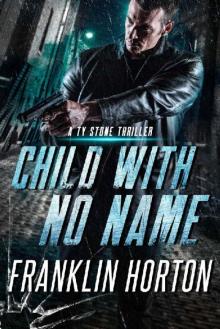 Child With No Name
Child With No Name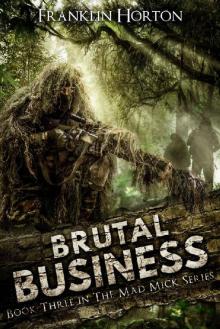 Brutal Business: Book Three in the Mad Mick Series
Brutal Business: Book Three in the Mad Mick Series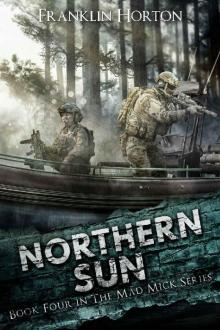 Northern Sun: Book Four in The Mad Mick Series
Northern Sun: Book Four in The Mad Mick Series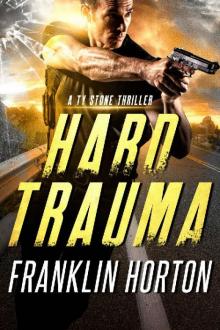 Hard Trauma
Hard Trauma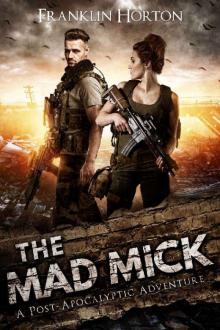 The Mad Mick: Book One of The Mad Mick Series
The Mad Mick: Book One of The Mad Mick Series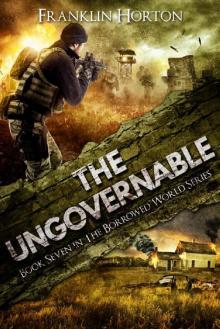 The Ungovernable
The Ungovernable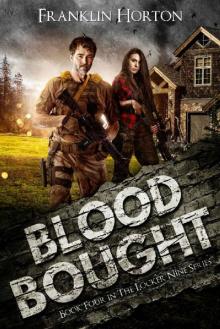 Blood Bought: Book Four in The Locker Nine Series
Blood Bought: Book Four in The Locker Nine Series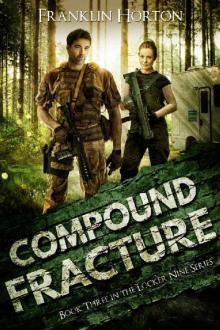 Compound Fracture
Compound Fracture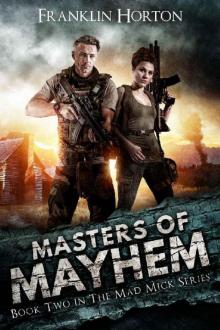 Masters of Mayhem
Masters of Mayhem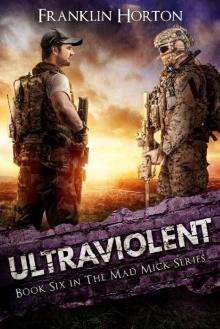 Ultraviolent: Book Six in The Mad Mick Series
Ultraviolent: Book Six in The Mad Mick Series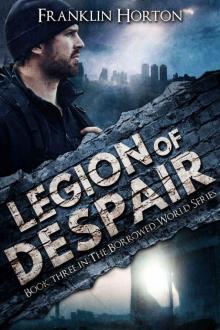 The Borrowed World (Book 3): Legion of Despair
The Borrowed World (Book 3): Legion of Despair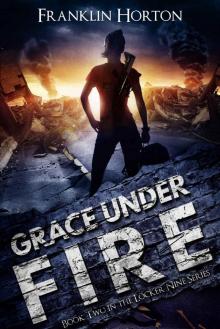 Grace Under Fire: Book Two In The Locker Nine Series
Grace Under Fire: Book Two In The Locker Nine Series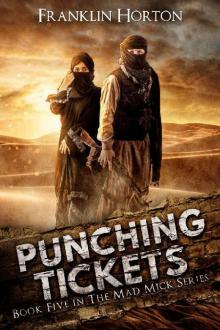 Punching Tickets: Book Five in The Mad Mick Series
Punching Tickets: Book Five in The Mad Mick Series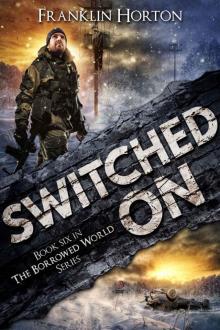 Switched On: Book Six in The Borrowed World Series
Switched On: Book Six in The Borrowed World Series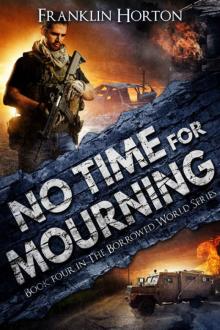 No Time For Mourning: Book Four in The Borrowed World Series
No Time For Mourning: Book Four in The Borrowed World Series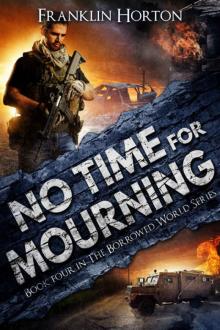 The Borrowed World (Book 4): No Time For Mourning
The Borrowed World (Book 4): No Time For Mourning Random Acts
Random Acts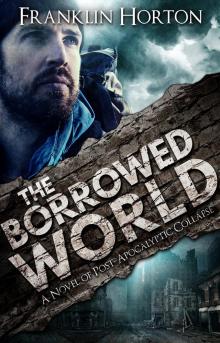 The Borrowed World: A Novel of Post-Apocalyptic Collapse
The Borrowed World: A Novel of Post-Apocalyptic Collapse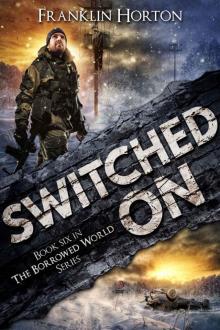 Switched On
Switched On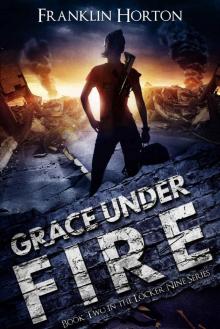 Grace Under Fire
Grace Under Fire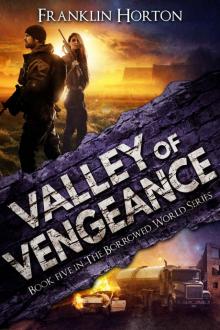 Valley of Vengeance: Book Five in The Borrowed World Series
Valley of Vengeance: Book Five in The Borrowed World Series